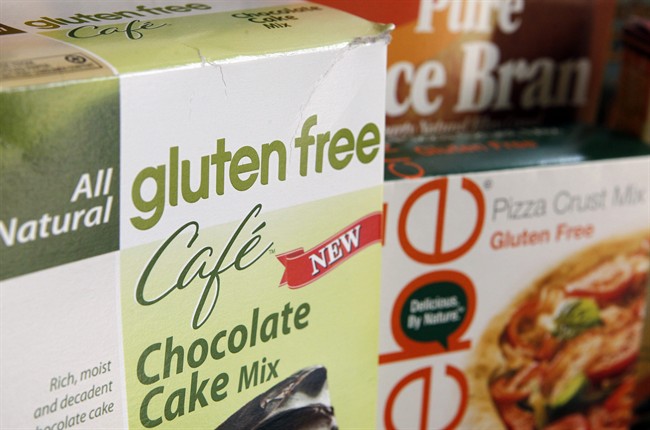Do you roll your eyes when your friend orders the gluten-free option? While celiac disease is the real deal, an Australian doctor is casting doubt on self-reported gluten intolerance.

Some supporters of the gluten-free diet may say that they feel healthier with better digestion since adopting the diet, but the latest findings suggest that if you aren’t suffering from celiac disease, your intolerance is likely in your head.
The findings come from Dr. Peter Gibson, a gastroenterology professor at Australia’s Monash University. In 2011, he studied gluten intolerance and suggested that gluten might be to blame for gastrointestinal pain. But what troubled him, according Real Clear Science, is that he couldn’t figure out what might be causing his study subjects’ bad reactions to gluten.
READ MORE: Canadian researchers developing treatment for celiac disease
So he decided to study gluten intolerance again. This time around, he recruited 37 study participants who reported sensitivity to gluten. To start, the entire group was fed a baseline diet that was low in FODMAPs, which are fermentable, poorly absorbed short-chain carbs for about two weeks’ time. (Bread, for example, is a key example of a FODMAP.)
Gibson wanted to zero in on reaction to gluten without any other variables affecting his study. All of the participants’ meals were doled out in the lab. Their food was stripped of lactose, preservatives, and simple carbs. Even their urine and feces were collected to check for inflammation.
READ MORE: Gluten-free tops Canada’s hottest food trends for 2014
Then Gibson cycled the study subjects through three different diets – a high-gluten diet with 16 grams of added gluten; a low-gluten diet with only two grams of gluten and 14 grams of whey protein; and a control diet which had 16 grams of whey protein a day.
The findings? Gibson’s participants reported stomach pain and sensitivity even when they weren’t eating gluten. Each diet had patients reporting pain, bloating, nausea, and gas after their baseline treatment, Real Clear Science reported.
The outlet suggests a “nocebo effect” is at play. Only eight per cent of the participants had “gluten-specific effects,” according to Gibson’s study published in the journal Gastroenterology.
There are about 300,000 Canadians living with celiac disease, according to Health Canada. It’s a food sensitivity triggered by gluten, causing damage to the small intestine while leaving patients with inflammation and abdominal pain among other symptoms.
Right now, the only way people manage celiac disease is by following a strict gluten-free diet, avoiding wheat, barley and rye.
READ MORE: Do fad diets followed by celebrities work?
Gluten is found in grains, such as wheat, barley and rye. Instead, gluten-free diets swap these out for flours made with rice, soy, potatoes or tapioca. Beans, nuts, fresh eggs, meat, fruit and vegetables are also safe bets for those with gluten intolerance.
Some celebrities embraced the gluten-free lifestyle to help them with their gluten insensitivities. Others — like Miley Cyrus — boasted that their switch to a gluten-free diet helped with weight loss. Gluten-free diets morphed into a weight-loss craze.
Some experts go so far as to say they hope the gluten-free fad comes to an end this year. They say that the gluten-free label has a “health halo” meaning people reach for these products thinking they are better options. The products are probably still processed, though. And if they do feel good? They might be eating more whole foods.
READ MORE: 13 tips for eating healthier in 2014
“Gluten-free doesn’t necessarily mean healthy for you. Gluten-free muffins or cake or baked goods – people think they’re good for them, but it’s not, necessarily,” Cleveland Clinic registered dietitian Jennifer Sygo explained.
carmen.chai@globalnews.ca
Follow @Carmen_Chai




Comments